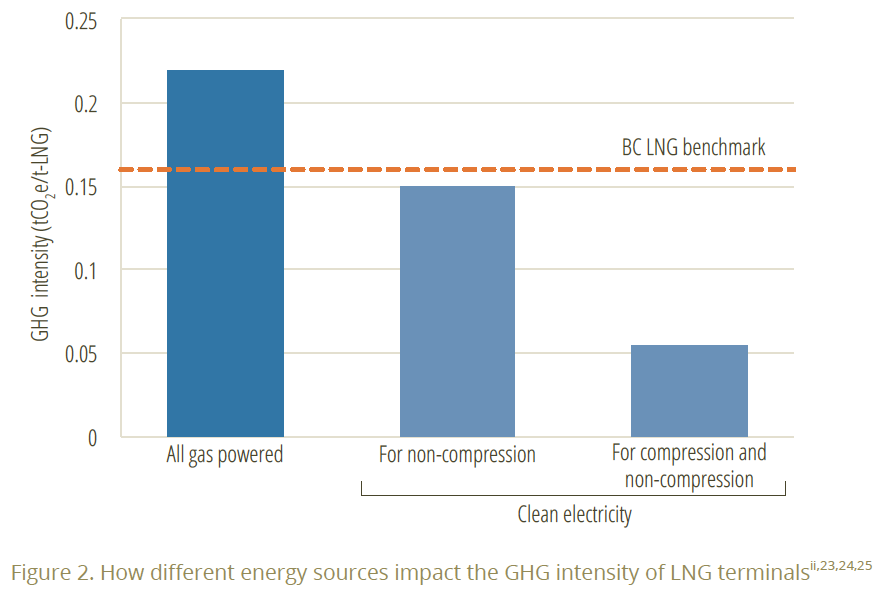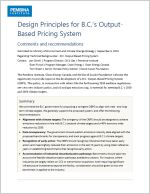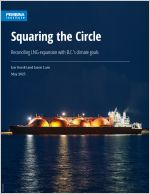
The development of a liquefied natural gas (LNG) export industry in British Columbia remains a controversial issue.
Carbon pollution from proposed LNG export plants on the Pacific coast and associated tight gas drilling operations in the Northeast would pose a serious challenge to Canada and B.C. making good on their climate commitments.
As currently proposed, the two most advanced LNG export projects on the B.C. coast — LNG Canada and Woodfibre LNG — would together emit enough carbon pollution to make meeting B.C.’s 2050 climate target virtually impossible. Furthermore, if the permits for Pacific NorthWest LNG were resurrected by the current or a new owner, that project would make the province’s legislated target impossible to reach.
This backgrounder — published by the Pembina Institute and the Pacific Institute for Climate Solutions — outlines the state of LNG development in B.C., the opportunities to improve the environmental performance of key projects currently under consideration, and the implications of a new LNG export industry for B.C.’s carbon pollution levels.
The Pembina Institute wishes to thank the Pacific Institute for Climate Solutions and the Real Estate Foundation of British Columbia for their support of this work.



